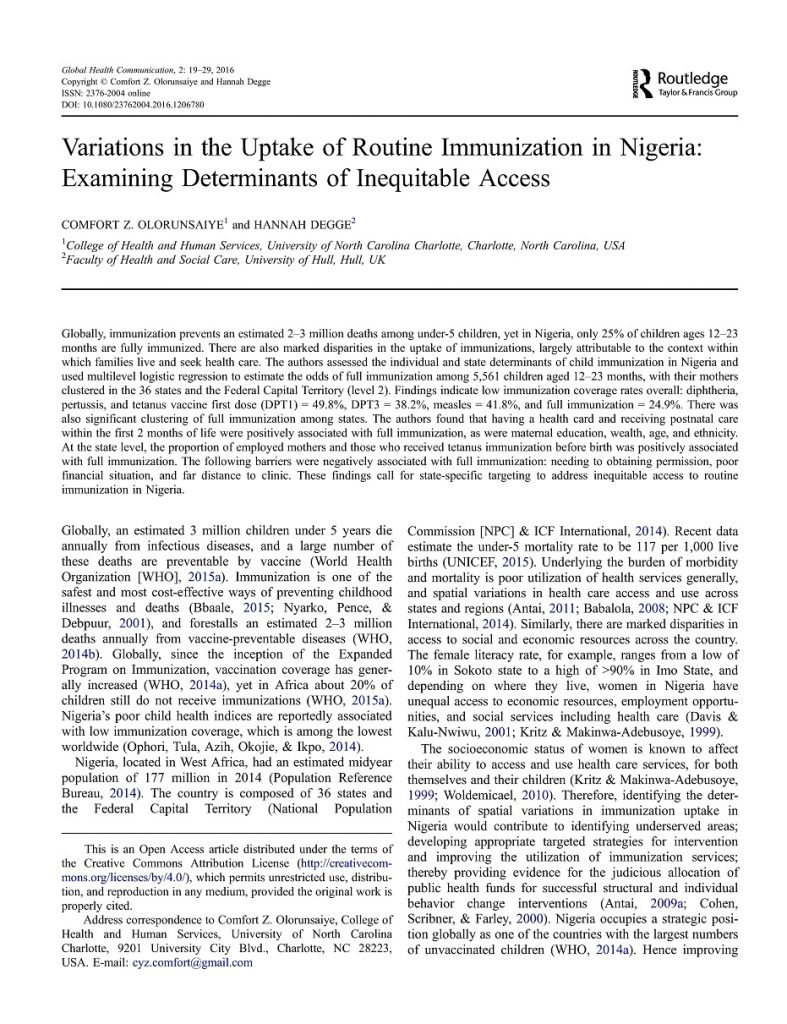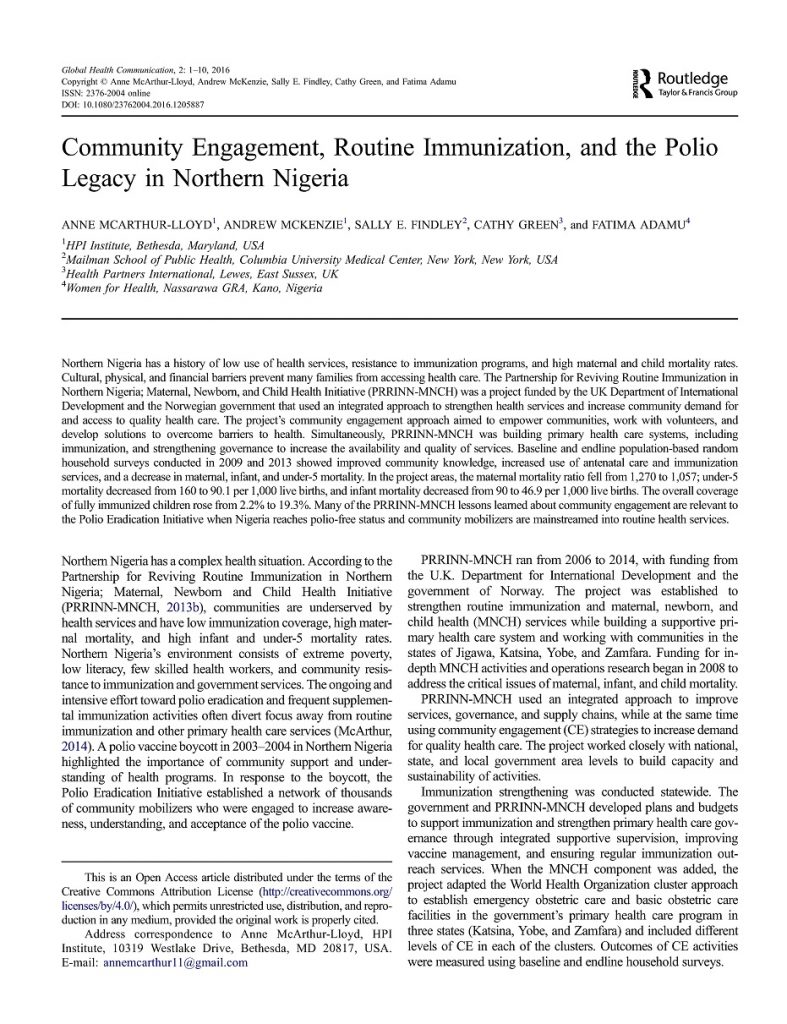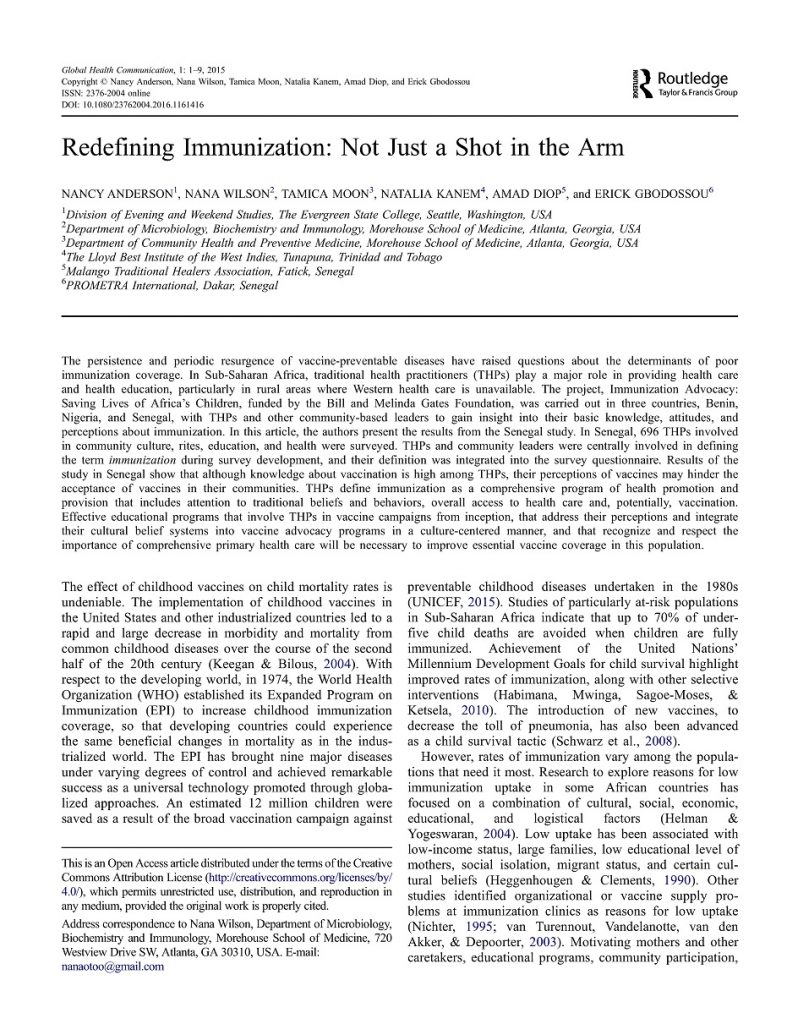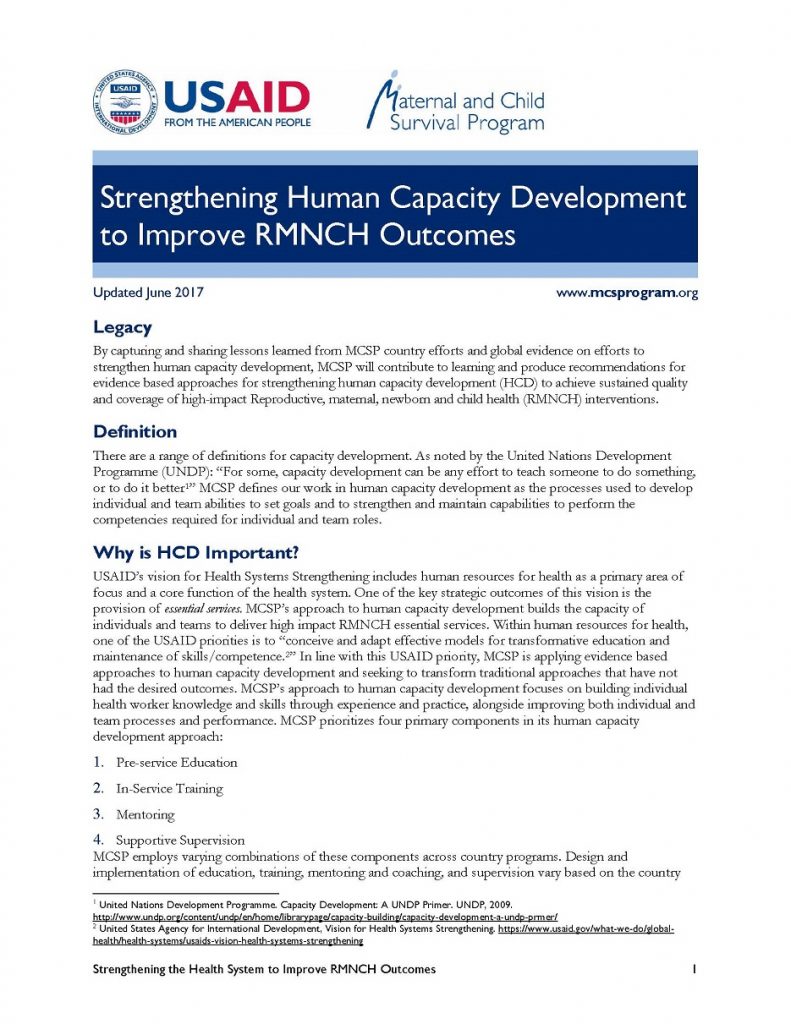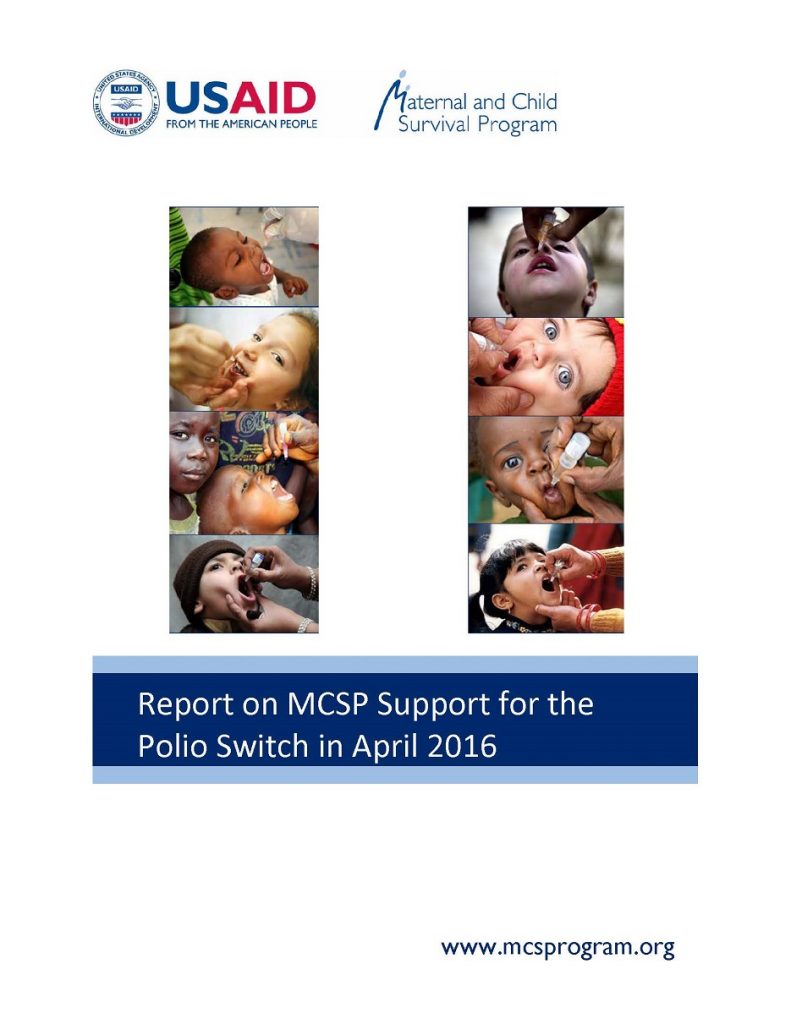
In April 2016, the largest and fastest globally-coordinated project in the history of immunization was carried out in 155 countries and territories. Known as “the switch,” this activity entailed replacing trivalent oral polio vaccine (tOPV), which protects against all three strains of the poliovirus, with the bivalent form (bOPV) which protects against two strains, types […]
Read More…
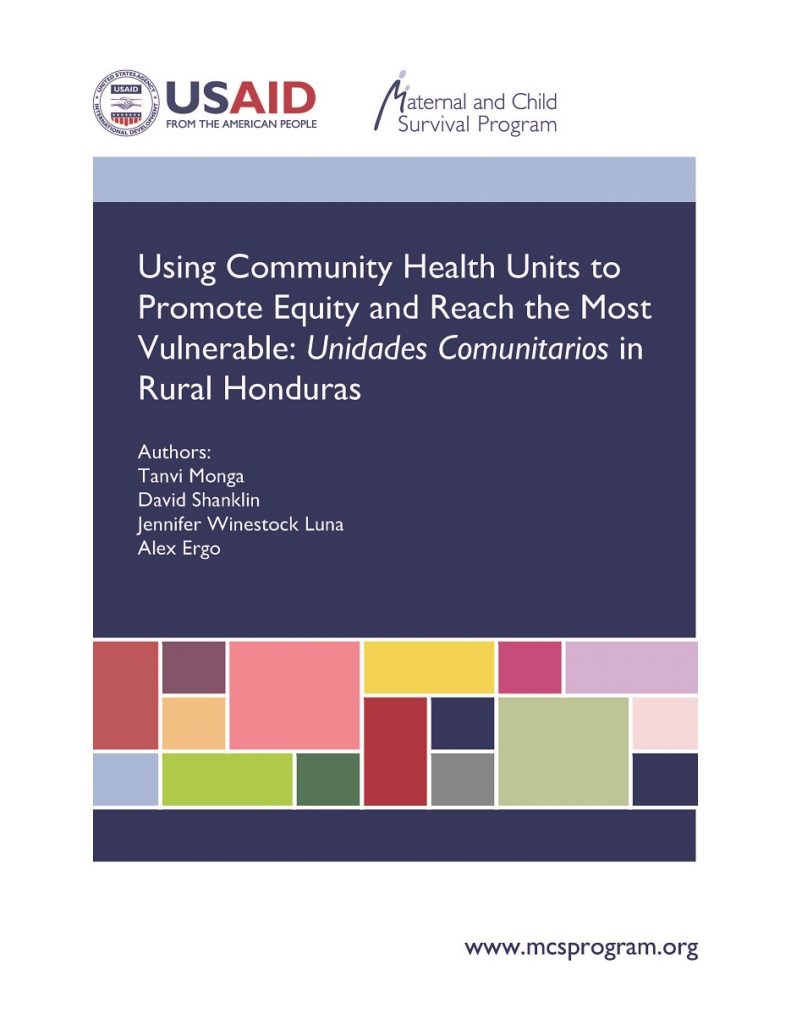
To help rural, poverty-stricken populations living in a mountainous area of Honduras overcome geographic and financial barriers to health care, ChildFund set out to bring high-quality, cost-effective interventions to these communities through the establishment of community health units (unidades comunitarios, abbreviated UCOS, in Spanish) in 2009. The UCOS used physical structures that were built using […]
Read More…
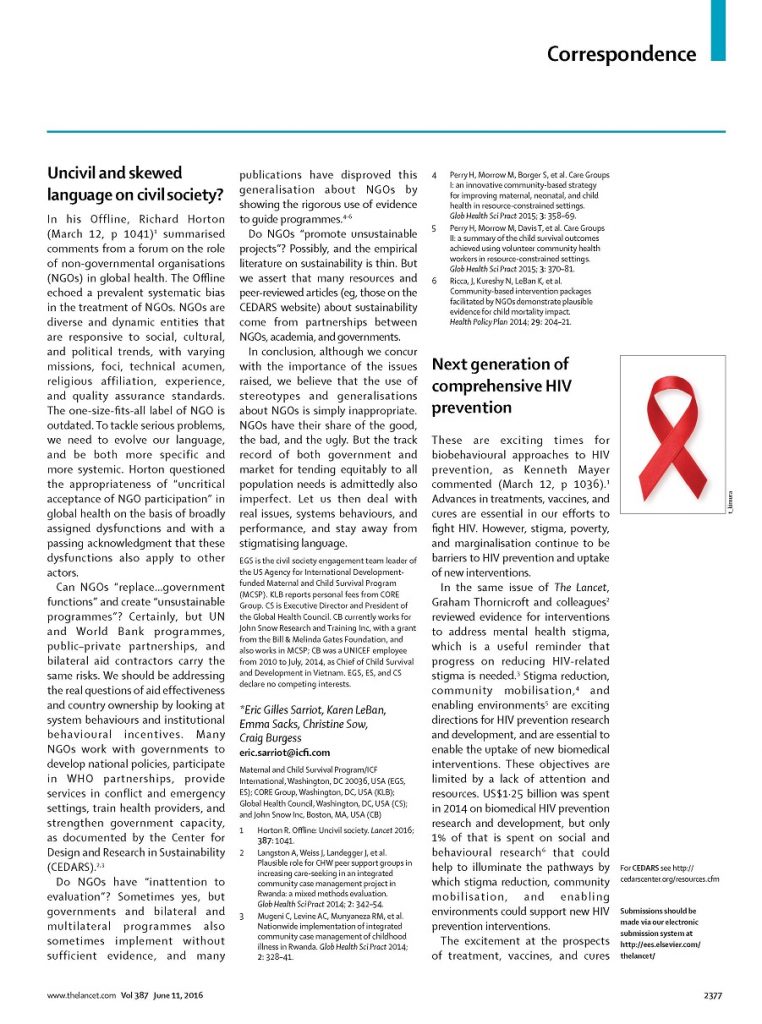
Commentary from MCSP staff published in the June 11, 2016 online Lancet on the “inappropriate” stereotyping and generalizing about nongovernmental organizations. To read the one-page correspondence, click here. […]
Read More…
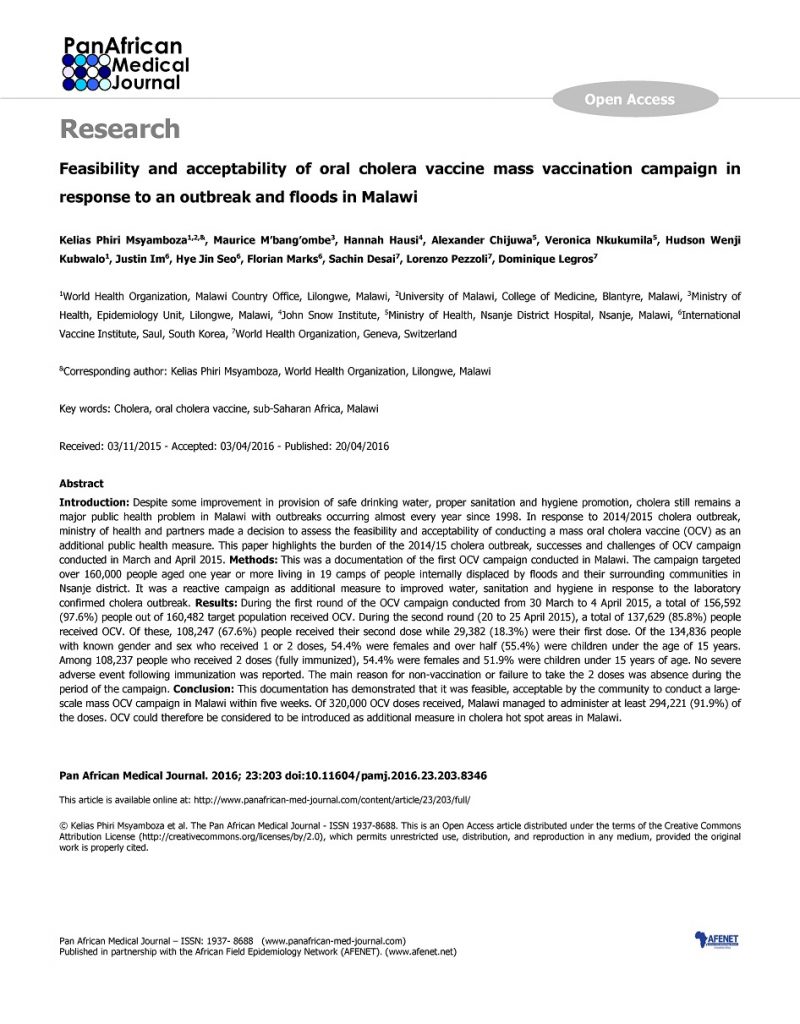
This MCSP co-authored article, published in the Pan African Medical Journal, highlights the burden of the 2014-15 cholera outbreak in Malawi, and successes and challenges of the country’s oral cholera vaccine campaign conducted in March and April 2015. To read the open access article, click here. […]
Read More…
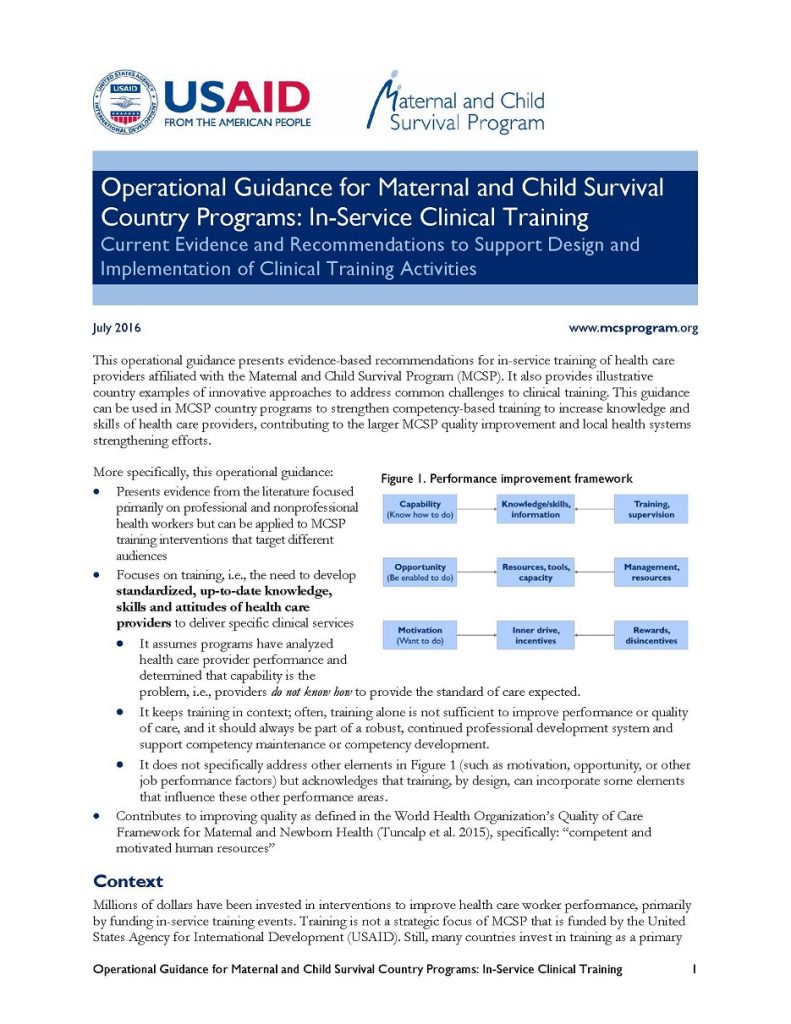
This operational guidance presents evidence-based recommendations for in-service training of health care providers affiliated with MCSP. It also provides illustrative country examples of innovative approaches to address common challenges to clinical training. This guidance can be used in MCSP country programs to strengthen competency-based training to increase knowledge and skills of health care providers, contributing […]
Read More…
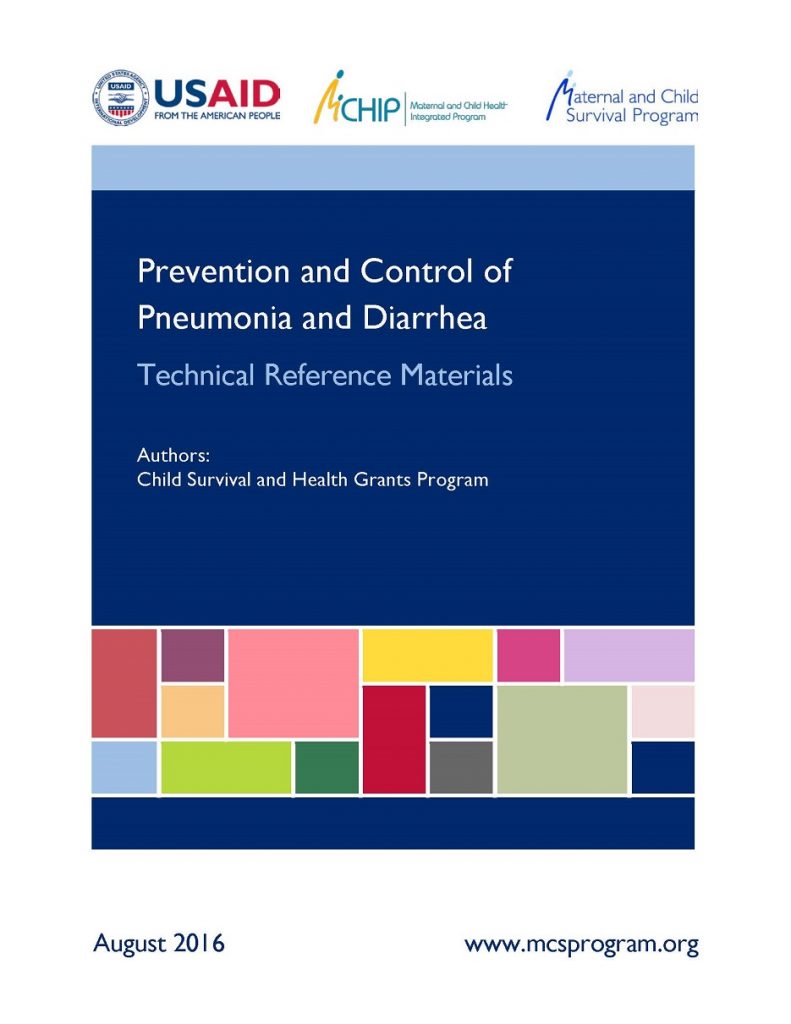
These resources act as guides to help program planners and implementers consider the many elements in a particular technical area of the Child Survival and Health Grants Program. They are not an official policy for practice; rather, they are basic, everyday summaries to be used as field reference documents. They may also be accessed in […]
Read More…
